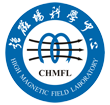题目: New Mechanisms for Old Chemotherapy Drugs (传统化疗药物的新作用机理)
报告人:Tim Mitchison(Harvard Medical School)
邀请人:刘青松、张欣 研究员
时间: 2013.04.18(周四). 上午 9:30
地点: 强磁场中心 201 会议室 
报告人介绍:Tim Mitchison 教授于1984年博士毕业于加州大学旧金山分校,1987-1997年为该校助理教授、副教授和教授. 于1997年转至哈佛医学院任化学和细胞生物学中心主任。近年来作为主要创始人之一,创建了哈佛医学院高通量筛选中心,并且创建了哈佛医学院系统生物学系并担任执行主任。1997年当选为英国皇家学会会员,2010年当选为美国细胞生物学年会主席。发表文章269篇,引用1万四千余次,H index 69. 培养的博士后作为教授和课题组负责人遍布各大名校,包括哈佛、麻省理工、斯坦福、加州大学伯克利分校等。
报告摘要:Cancer chemotherapeutic drugs can be broadly divided into cytoxic, hormonal and targeted, but new modalities are needed to combat metastatic disease. We are approaching this problem by analyzing the biochemical and cellular mechanisms of successful and failed drugs. Anti-microtubule drugs such as paclitaxel are thought to selectively kill dividing cells via mitotic arrest. We compared responses to anti-microtubule and targeted anti-mitosis drugs in cell culture and xenograft models using single cell imaging. We propose that the mechanism in common to the two drug classes, death via mitotic arrest, is responsible for the anti-proliferative side effects of chemotherapy. Tumor killing efficacy appears to arise from a novel interphase cell killing pathway unique to the anti-microtubule drugs and the tumor environment, which we are trying to recapitulate in cell culture. Another approach to chemotherapy is to activate tumor resident innate immune cells to damage the tumor. We have analyzed the mechanism of the anti-tumor flavonoids FAA and DMXAA that cure mouse tumors by this mechanism, but failed in man. We have identified a candidate protein target in mouse macrophages, and find that the human homolog does not bind the drugs, which may explain lack of efficacy in man. These studies identify a promising target for a new class of chemotherapy drugs that works by activating innate immunity.
欢迎感兴趣的老师和同学参加!

© 1996 - 强磁场科学中心 版权所有 皖ICP备05001008号-11
地址:安徽省合肥市蜀山湖路350号 邮编:230031 电话:0551-65591149 传真:0551-65591149 邮箱:chmfl@hmfl.ac.cn


